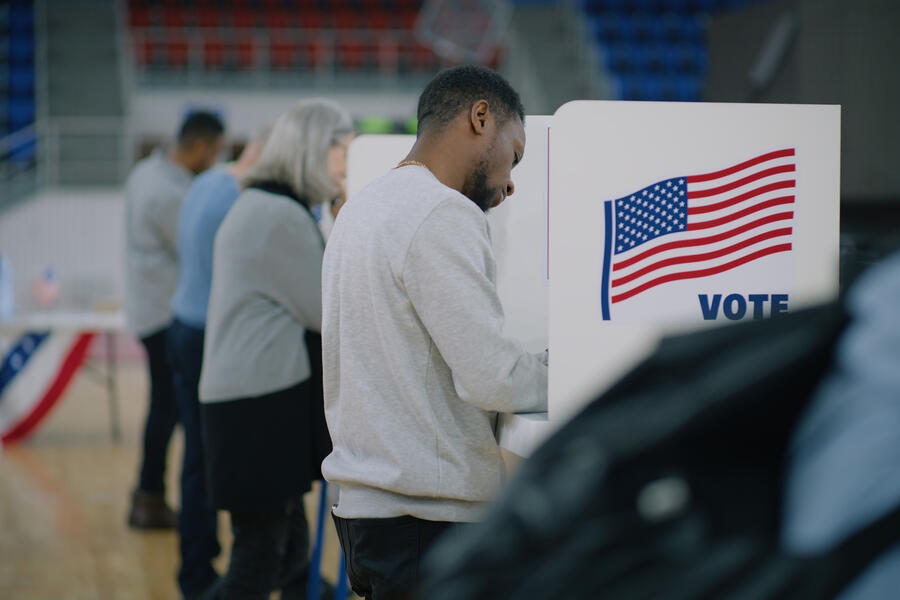- Name
- Johns Hopkins Media Relations
- jhunews@jhu.edu
- Office phone
- 443-997-9009
Polls leading up to Election Day in the United States predicted a tight race between Vice President Kamala Harris and former President Donald Trump. Pundits offered an array of predictions: The 47th president would be chosen by voters in a handful of swing states; women in the suburbs would help elect the first female president; rhetoric about immigration would win over conservative voters; inflation and rising costs for housing and groceries would lead to an out-party victory; and results could be announced much sooner—or much later—than they were for the 2020 election.
By early Wednesday morning, the Electoral College race to the White House had been called for Trump, who seemed on track to win the popular vote, too. What polls and predictions ultimately came to pass? Here, experts from Johns Hopkins University offer insights about what we can take away from this election and what led America to choose a second Trump term.
A failure to make way for the next generation
In my view the story of this election is about how clinging to power at all costs is bad for the country. It is not just about how a party and a slim majority of voters can support someone who encouraged an insurrection and violated the Constitution, raising fears that our democracy is under threat. It is also about how Democrats like Ruth Bader Ginsberg and Joe Biden set their party up for failure by refusing to step aside early enough to let a new generation of leaders in.
Dawn Teele, associate professor of political science at the SNF Agora Institute at Johns Hopkins University
A smooth election process and a status quo shakeup
After an election season marred by concerns about foreign interference, artificial intelligence, and other restrictions and threats to the vote, one of the most striking and important aspects of the 2024 election was that it ran smoothly. Election administrators from all political persuasions should be commended for the job they did under extremely challenging circumstances.
Clearly, Americans are frustrated with the status quo. Another Trump administration may put unique threats on our constitutional order—conservatives and Republicans who care about basic democratic principles, who SNF Agora has been helping to convene and organize over the past two years, will be vital in helping to protect the guardrails of the republic.
Scott Warren, a fellow at the SNF Agora Institute at Johns Hopkins University
A turn toward autocracy
The most straightforward explanation for the outcome is that inflation dragged down the Biden administration's approval ratings and Harris was unable to escape her association with the incumbent president. This explanation is borne out by the uniform swing toward Trump and the Republican Party across the country: urban/rural, Democratic and Republican. Inflation is down but prices remain high. People feel their lives were better under Trump—which is really just to say before COVID—and they voted accordingly. We will eventually add layers of complexity to this explanation in terms of specific slices of the electorate and their affinities for Trump or against Harris that will help us understand how much of Tuesday's result signals a durable shift in American politics.
The bigger question, of course, is what comes next. I am much less optimistic about the robustness of American institutions than I was eight years ago. While I do not believe that a majority of Americans voted for autocracy, this election places us firmly on a trajectory toward illiberalism that could last decades. Comparative research teaches us that when countries turn in an autocratic direction, most individuals and institutions will comply with the regime.
Adam Sheingate, professor of political science at Johns Hopkins University
Johns Hopkins University is a 501(c)(3) not-for-profit institution that does not endorse or oppose any candidate for public office.
Posted in Voices+Opinion, Politics+Society
Tagged snf agora institute, election 2024








